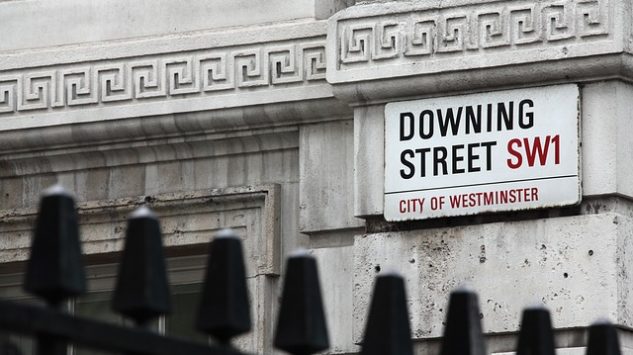Issue Briefs

After Theresa May Britain still in deep crisis
Graham Bardgett
May 30, 2019
UK Prime Minister Theresa May foresaw herself the damage her own Conservative Party would suffer in the European Parliament Elections, now probably the worst political defeat for the Tories in 200 years. She announced her resignation the day after the people went to the polls.
Brexit Party won
Jeremy Corbyn’s Labour Party also suffered heavy losses in the percentage share of the vote. But the overall winner was the newly formed Brexit Party formed just six weeks previously by former United Kingdom Independence Party founder Nigel Farage who topped the polls across virtually all regions of England. Sir Vince Cable’s Liberal Democrats, which had also seen colossal gains in the English Council Elections in May, became another front-runner in the EU Parliament Results, having stood as the Party of Remain, determined to bring about another European Referendum to reverse the 52% to 48% result of June 2016.
In Scotland, the Scottish Nationalist Party saw massive gains – again insisting that Mrs May’s political approach on Europe had completely ignored the wishes of people North of the Border who had overwhelmingly voted to Remain in Europe, proclaiming they would not be dragged out of the EU.
Difficult road ahead for a new Prime Minister
Mrs May resignation solved nothing. The political crisis if anything has been made even worse as Britain has become even more polarized on Europe. Getting the Withdrawal Bill through the UK Parliament after almost three years of negotiations with EU leaders looks now even more unlikely. The Prime Minister, saying she had done her best, tried three times; but MPs voted to reject the deal and her statement outside Downing Street ended in tears as she proclaimed she did all she could for the country she loves.
Mrs May’s resignation takes effect on 07 June and she will stay on to see in another Conservative Party leader in July. Only the 140,000 membership of the Conservative Party can vote in the leadership election. As things stand, former Foreign Secretary Boris Johnson is the front runner in the contest. But with bitter in-fighting among all the candidates, on a Deal or No Deal on Brexit, there are now demands from Labour for a General Election to be brought about by a vote of No Confidence in the Tory minority Government.
Nigel Farage is the winner
The Brexit Party was the clear winner in the UK’s European elections, with the pro-EU Lib Dems coming second. The Conservatives and Labour suffered heavy losses, with the former getting less than 10% of the vote. Brexit Party leader Nigel Farage said he was ready to “take on” the Tories and Labour in a general election.
Mr Farage told BBC Radio 4’s Today programme: “With a big, simple message – which is we’ve been badly let down by two parties who have broken their promises – we have topped the poll in a fairly dramatic style.”
“The two party system now serves nothing but itself. I think they are an obstruction to the modernizing of politics… and we are going to take them on.”
Remain supporters pledge to fight on
The deputy leader of the pro-Remain Liberal Democrats, Jo Swinson, said the result should “give hope to all of the people out of there who want to stop Brexit”, and that they “should not be giving up without a fight”.
“When there is such a general shamble over Brexit, then a further referendum is the best way out of the impasse,” she told Today.
Polling expert Professor Sir John Curtice from Strathclyde University said the results showed just how polarized the country had become.
Brexit wins
The UK had been due to leave the EU on 29 March, but when that deadline was missed, participation in the European Parliament election became mandatory. The Brexit Party topped the polls in every region of England apart from London. It also dominated in Wales with Plaid Cymru second. It has now become the joint largest national party in the European Parliament, alongside Germany’s CDU/CSU party.
Labour leader Jeremy Corbyn placed blame for his party’s failure squarely with the Conservatives, arguing it meant the elections had “become a proxy second referendum”. He said his party would “reflect on these results on both sides of the Brexit divide” and the issue “will have to go back to the people” through a general election or a public vote. Labour’s deputy leader Tom Watson said the party needed to “urgently” rethink its Brexit position after the “disastrous” election results.
Meanwhile, Alastair Campbell, former spin doctor to Tony Blair and prominent member of the People’s Vote campaign for another referendum, revealed that for the first time in his life he had voted for the Lib Dems.
Save British Steel?
An additional problem adding to London’s headaches is the compulsory liquidation of British Steel. And in the House of Lords debate on British Steel on Thursday 22 May, Labour Lord West – the former First Sea Lord of the Royal Navy and a Security Minister in Gordon Brown’s Government – said he feared for the consequences of letting the steel industry collapse in Britain.
He accused the Conservative Government of not being joined up. Live on the BBC’s Parliament Channel and in Hansard, Lord West said it was “an absolute strategic defence requirement for our nation to to able to produce steel”. He said he feared for the capacity of Britain to produce the new ballistic missile submarines and new Royal Navy ships.
He is not alone by any means. Leaders of the car industry, trade union leaders, and the Confederation of British Industry representing millions of workers, have warned of an economic disaster that is looming in Britain.
Pro-Brexit Prime Minister very likely
At this moment the contenders for the Conservative Party Prime Minister title look all to be Brexiteers, determined on taking the UK out of the EU. But there are still the views of 48 per cent of the UK who voted to Remain in 2016 to consider.
 |
Graham Bardgett is a Global Policy Institute Fellow. He has reported for the Los Angeles Post Examiner and Baltimore Post Examiner and is a former BBC Radio News sub-editor in London and Veteran reporter of the Northern Ireland Troubles and Peace Process. He had five years on the news desk of BBC Northern Ireland, nine years as a security reporter on the Belfast Telegraph, four years as Ireland staff reporter for the Daily Mail, and was a correspondent for the Financial Times, Daily Mirror, Sunday Express, and Irish Daily Mail. During his career he has also reported from Berlin, Luxembourg, and Rome, and carried out public affairs critical incident consultancy work in Kazakhstan and in London. He had four years with PwC international accountants and consultants; and was previously a UK Government Higher Executive Press Officer. |
The views and opinions expressed in this issue brief are those of the author.